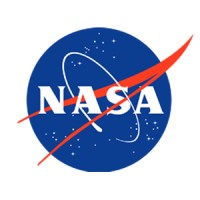The Musk-Trump Efficiency Panel: A New Era of Government Streamlining?
November 15, 2024, 3:34 pm

Location: United States, District of Columbia, Washington
Employees: 501-1000
Founded date: 1970

Location: United States, Maryland, Greenbelt
Employees: 10001+
Founded date: 1958
Total raised: $25.7B

Location: United States, California, San Francisco
Employees: 1001-5000
Founded date: 2011
In the world of politics, few names spark as much intrigue as Elon Musk. The billionaire entrepreneur, known for his ventures in electric vehicles and space exploration, is now stepping into the political arena. President-elect Donald Trump has tasked Musk with leading a new initiative aimed at streamlining the U.S. government. This panel, humorously dubbed the “Department of Government Efficiency” (D.O.G.E.), promises to tackle the mountain of federal regulations and spending. But what does this mean for the future of governance in America?
Musk's ambitious goal is to cut federal spending by a staggering $2 trillion. This figure exceeds the total discretionary spending, which includes defense. It’s a bold claim, one that raises eyebrows and questions. How can one man, even one as influential as Musk, reshape the vast machinery of the federal government?
The panel will also include Vivek Ramaswamy, a former presidential candidate with a penchant for criticizing federal agencies. Together, they aim to provide “advice and guidance” from outside the government. This approach echoes past efforts, such as Ronald Reagan’s Grace Commission, which sought to eliminate inefficiencies in the 1980s. However, history shows that many recommendations from such panels often go unheeded.
Musk’s track record in cost-cutting is mixed. His acquisition of Twitter, now known as X, saw massive layoffs and a significant drop in revenue. Critics argue that his methods could be too drastic, potentially leaving vital agencies underfunded and understaffed. The National Highway Traffic Safety Administration (NHTSA), for instance, is already stretched thin. Musk’s influence could lead to further cuts, raising concerns about auto safety regulations.
Safety advocates worry that a Musk-led panel could undermine the NHTSA’s ability to enforce regulations. The agency has previously clashed with Tesla over recalls and investigations into autonomous driving claims. If Musk’s vision for efficiency comes to fruition, the NHTSA might become a shell of its former self, focused more on public relations than on safety enforcement.
Space exploration is another area where Musk’s interests intersect with government oversight. SpaceX, his aerospace company, has secured billions in contracts from NASA and the Pentagon. However, Musk has often criticized the Federal Aviation Administration (FAA) for what he perceives as excessive bureaucracy. If he gains more influence, we could see a shift in how space regulations are enforced, potentially prioritizing speed over safety.
Musk’s foray into social media has also drawn scrutiny. His management of X has raised questions about data privacy and content moderation. The Federal Trade Commission has investigated his handling of sensitive consumer data, but no enforcement actions have been taken. Musk’s political views have transformed X into a platform that amplifies his agenda, particularly in support of Trump. This relationship could blur the lines between business interests and political influence.
The panel’s structure remains unclear. Musk has suggested that it will operate transparently, inviting public input on proposed cuts. However, the reality is that Congress holds the purse strings. Any significant changes to federal spending will require legislative approval. Musk and Ramaswamy may propose radical ideas, but Congress can choose to ignore them.
The potential for conflict of interest looms large. Musk’s businesses, including Tesla and SpaceX, rely heavily on government contracts. If he were to take a formal role in government, he could face ethical dilemmas. Federal conflict of interest laws could restrict his ability to influence decisions that impact his companies. A waiver from these laws, while possible, would likely face public backlash.
The panel’s success hinges on its ability to identify and eliminate waste without compromising essential services. Musk’s approach to efficiency often involves drastic cuts. While some argue that government can be streamlined, others caution against losing critical functions. The challenge lies in distinguishing between waste and necessary spending.
As the panel gears up, it’s essential to consider the broader implications. Will Musk’s vision lead to a leaner, more efficient government? Or will it create gaps in oversight and regulation? The stakes are high, and the answers remain uncertain.
In the end, the Musk-Trump efficiency panel represents a gamble. It’s a bold experiment in governance, one that could reshape the federal landscape. The outcome will depend on how well Musk navigates the complexities of government bureaucracy while balancing his business interests.
As the nation watches, one thing is clear: the intersection of business and politics is more pronounced than ever. The D.O.G.E. may just be the beginning of a new chapter in American governance, where the lines between entrepreneur and policymaker blur. The question remains: will this new approach lead to progress or chaos? Only time will tell.
Musk's ambitious goal is to cut federal spending by a staggering $2 trillion. This figure exceeds the total discretionary spending, which includes defense. It’s a bold claim, one that raises eyebrows and questions. How can one man, even one as influential as Musk, reshape the vast machinery of the federal government?
The panel will also include Vivek Ramaswamy, a former presidential candidate with a penchant for criticizing federal agencies. Together, they aim to provide “advice and guidance” from outside the government. This approach echoes past efforts, such as Ronald Reagan’s Grace Commission, which sought to eliminate inefficiencies in the 1980s. However, history shows that many recommendations from such panels often go unheeded.
Musk’s track record in cost-cutting is mixed. His acquisition of Twitter, now known as X, saw massive layoffs and a significant drop in revenue. Critics argue that his methods could be too drastic, potentially leaving vital agencies underfunded and understaffed. The National Highway Traffic Safety Administration (NHTSA), for instance, is already stretched thin. Musk’s influence could lead to further cuts, raising concerns about auto safety regulations.
Safety advocates worry that a Musk-led panel could undermine the NHTSA’s ability to enforce regulations. The agency has previously clashed with Tesla over recalls and investigations into autonomous driving claims. If Musk’s vision for efficiency comes to fruition, the NHTSA might become a shell of its former self, focused more on public relations than on safety enforcement.
Space exploration is another area where Musk’s interests intersect with government oversight. SpaceX, his aerospace company, has secured billions in contracts from NASA and the Pentagon. However, Musk has often criticized the Federal Aviation Administration (FAA) for what he perceives as excessive bureaucracy. If he gains more influence, we could see a shift in how space regulations are enforced, potentially prioritizing speed over safety.
Musk’s foray into social media has also drawn scrutiny. His management of X has raised questions about data privacy and content moderation. The Federal Trade Commission has investigated his handling of sensitive consumer data, but no enforcement actions have been taken. Musk’s political views have transformed X into a platform that amplifies his agenda, particularly in support of Trump. This relationship could blur the lines between business interests and political influence.
The panel’s structure remains unclear. Musk has suggested that it will operate transparently, inviting public input on proposed cuts. However, the reality is that Congress holds the purse strings. Any significant changes to federal spending will require legislative approval. Musk and Ramaswamy may propose radical ideas, but Congress can choose to ignore them.
The potential for conflict of interest looms large. Musk’s businesses, including Tesla and SpaceX, rely heavily on government contracts. If he were to take a formal role in government, he could face ethical dilemmas. Federal conflict of interest laws could restrict his ability to influence decisions that impact his companies. A waiver from these laws, while possible, would likely face public backlash.
The panel’s success hinges on its ability to identify and eliminate waste without compromising essential services. Musk’s approach to efficiency often involves drastic cuts. While some argue that government can be streamlined, others caution against losing critical functions. The challenge lies in distinguishing between waste and necessary spending.
As the panel gears up, it’s essential to consider the broader implications. Will Musk’s vision lead to a leaner, more efficient government? Or will it create gaps in oversight and regulation? The stakes are high, and the answers remain uncertain.
In the end, the Musk-Trump efficiency panel represents a gamble. It’s a bold experiment in governance, one that could reshape the federal landscape. The outcome will depend on how well Musk navigates the complexities of government bureaucracy while balancing his business interests.
As the nation watches, one thing is clear: the intersection of business and politics is more pronounced than ever. The D.O.G.E. may just be the beginning of a new chapter in American governance, where the lines between entrepreneur and policymaker blur. The question remains: will this new approach lead to progress or chaos? Only time will tell.